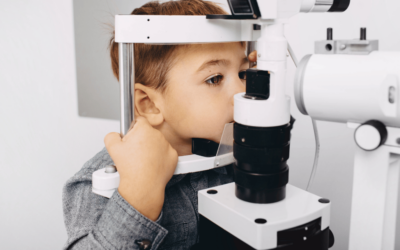Insurance can be confusing, especially when it comes to eye care! You might be wondering: Will my insurance cover my eye exam? Should I use vision or medical insurance for this visit? Will my new glasses be covered by my insurance? Understanding the differences between vision and medical insurance and what they cover for eye care can help you avoid surprising costs and make the most of your benefits.
At Walter Eye Clinic in Tinley Park, Illinois, we accept a variety of vision and medical insurance plans to help make your eye care more affordable. Let’s take a look at what each type of insurance covers and when to use them.
What does vision insurance cover?
Vision plans are designed to help with routine eye care and eyewear. If you wear glasses or contact lenses, this type of plan can help make your annual exams and new lenses more affordable. Generally, vision insurance covers:
- Routine eye exams: Vision plans usually cover annual eye exams. These exams are crucial for maintaining eye health and updating prescriptions for glasses or contact lenses.
- Glasses and contact lenses: You’ll typically get an allowance for frames, eyeglass lenses, or contact lenses or discounts on certain brands and styles.
- Lens enhancements: Some plans cover or provide discounts on lens add-ons, such as anti-reflective coatings, photochromic lenses, or progressive lenses.
What does vision insurance not cover? Medical treatments for eye conditions or emergencies—that’s when you will need your medical insurance.
What does medical insurance cover for eye care?
Medical insurance, on the other hand, covers eye care related to eye diseases, injuries, and other medical conditions affecting the eyes. If you have an eye infection, experience sudden vision changes, or get diagnosed with an ongoing eye condition like glaucoma, you will likely use your medical insurance to cover the necessary medical eye exams and treatments. Typically, you need medical insurance when you:
- Have eye pain, redness, or sudden vision changes
- Need treatment for eye infections, injuries, or diseases
- Have a condition like dry eye, cataracts, or glaucoma
- Need a diabetic eye exam or other medical screenings
- Require eye surgery for cataracts or injuries
Simply put, if you’re treating a medical eye condition rather than coming in for a routine eye exam, we will most likely bill your medical insurance.
How to know which insurance to use
The type of insurance you use depends on the reason for your visit. If you’re scheduling a routine exam to check your vision and update your prescription, vision insurance applies. But if you’re experiencing eye pain, irritation, or sudden vision changes, or if you need treatment for an ongoing condition, medical insurance will likely cover the visit.
Sometimes, both types of insurance work together. For example, if you have glaucoma, medical insurance covers your treatment, but vision insurance might still help pay for new glasses if your prescription changes.
Making the most of your insurance at Walter Eye Clinic
Understanding your coverage can help you maximize your benefits and avoid unexpected costs. If you need to schedule an appointment, give us a call at Walter Eye Clinic or use our online scheduler to book an eye exam in Tinley Park, IL. We’d be happy to answer any questions you may have or help you verify your coverage.



